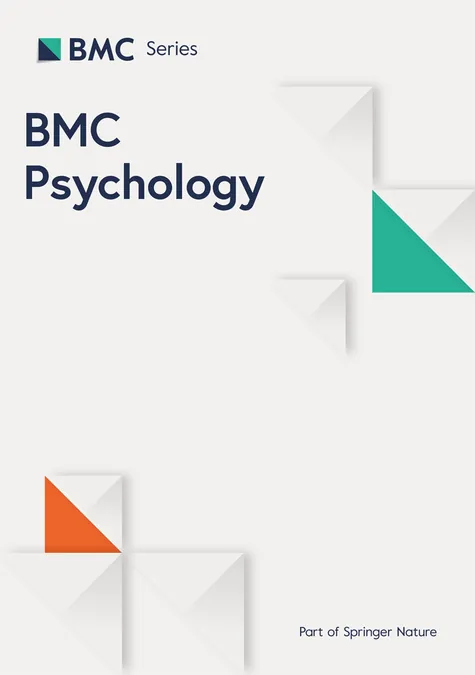
Unraveling the Link Between Motor Skills and ADHD: How Overlapping Conditions Can Complicate Diagnoses
2025-01-18
Author: William
Introduction
Attention-Deficit/Hyperactivity Disorder (ADHD) is primarily characterized by symptoms of inattention and hyperactivity. However, recent studies reveal that children with ADHD often experience significant motor difficulties, challenging the conventional understanding of the disorder. Research suggests that these motor issues are common among individuals with ADHD, yet they are frequently overlooked, leading to complications in diagnosis and treatment.
ADHD and DCD Co-occurrence
One critical aspect of ADHD that remains muddled is the high prevalence of co-occurrence with Developmental Coordination Disorder (DCD), a condition marked by impairments in motor learning and coordination abilities. Approximately 50% of children with ADHD also meet the criteria for DCD. Despite being recognized as separate conditions, the overlapping symptoms make it challenging for clinicians to accurately discern the motor profiles associated with ADHD alone.
Motor Difficulties in ADHD
Studies employing various testing methods, such as the Movement Assessment Battery for Children, indicate that a striking number of children with ADHD exhibit scores indicative of probable DCD. For instance, in a sample studied, a significant percentage of children were found to have motor impairments that surpassed those of their typically developing peers. Notably, even when participants diagnosed with DCD were excluded from the analysis, children with ADHD consistently displayed more pronounced motor difficulties compared to controls.
Parental Insights and Diagnosis
Furthermore, subjective measures, like the Developmental Coordination Disorder Questionnaire (DCD-Q), reinforce these findings. A striking one in three children with ADHD showed potential signs of DCD based on parental reports, highlighting the necessity for greater awareness of motor difficulties in this population. Interestingly, DCD-Q scores proved to be more predictive of ADHD diagnosis than traditional behavioral measures, presenting a compelling argument for integrating parent-reported tools into diagnostic assessments.
Need for Further Research
The interplay of ADHD and DCD underscores the need for more in-depth research. Many studies currently examine the similarities and unique presentations of each condition. For instance, brain imaging studies have uncovered shared neural characteristics among children with ADHD and those with DCD, suggesting a complex relationship between these disorders.
DCD Awareness Among Parents
The study gathered data from 191 parents of children with ADHD recruited through various platforms, ensuring a diverse demographic representation. Results indicated that even among children already diagnosed with DCD, a majority exhibited significant signs of motor difficulties, showcasing how prevalent these issues are within ADHD samples. Alarmingly, many parents demonstrated a lack of awareness about DCD, revealing an urgent need for improved education and resources regarding motor skill development among clinicians, particularly in German-speaking countries.
Impact on Quality of Life
The importance of understanding the relationship between ADHD and DCD cannot be overstated—not only do motor skills play a crucial role in the daily lives of affected children, but they can also impact their overall well-being. Some parents reported that their children were undergoing therapy to manage symptoms of ADHD; however, barriers like long waitlists for treatment and lack of resources often hinder access to comprehensive care.
Conclusion
As it stands, researchers urge a paradigm shift in ADHD evaluation methods to also address motor challenges, advocating for a comprehensive review of each child's symptoms in a more inclusive manner. Moreover, there is a call for future studies to explore long-term outcomes for children diagnosed with both ADHD and DCD, assessing how early intervention can impact quality of life.
In conclusion, the intersection of motor skills difficulties and ADHD calls for an urgent reassessment in how we approach diagnosis and treatment. As awareness grows, so does the need for targeted interventions that can holistically support children living with these often co-occurring conditions. The journey to better understanding and addressing ADHD may very well begin with acknowledging the nuances of motor skills and their implications on overall development.









 Brasil (PT)
Brasil (PT)
 Canada (EN)
Canada (EN)
 Chile (ES)
Chile (ES)
 Česko (CS)
Česko (CS)
 대한민국 (KO)
대한민국 (KO)
 España (ES)
España (ES)
 France (FR)
France (FR)
 Hong Kong (EN)
Hong Kong (EN)
 Italia (IT)
Italia (IT)
 日本 (JA)
日本 (JA)
 Magyarország (HU)
Magyarország (HU)
 Norge (NO)
Norge (NO)
 Polska (PL)
Polska (PL)
 Schweiz (DE)
Schweiz (DE)
 Singapore (EN)
Singapore (EN)
 Sverige (SV)
Sverige (SV)
 Suomi (FI)
Suomi (FI)
 Türkiye (TR)
Türkiye (TR)
 الإمارات العربية المتحدة (AR)
الإمارات العربية المتحدة (AR)